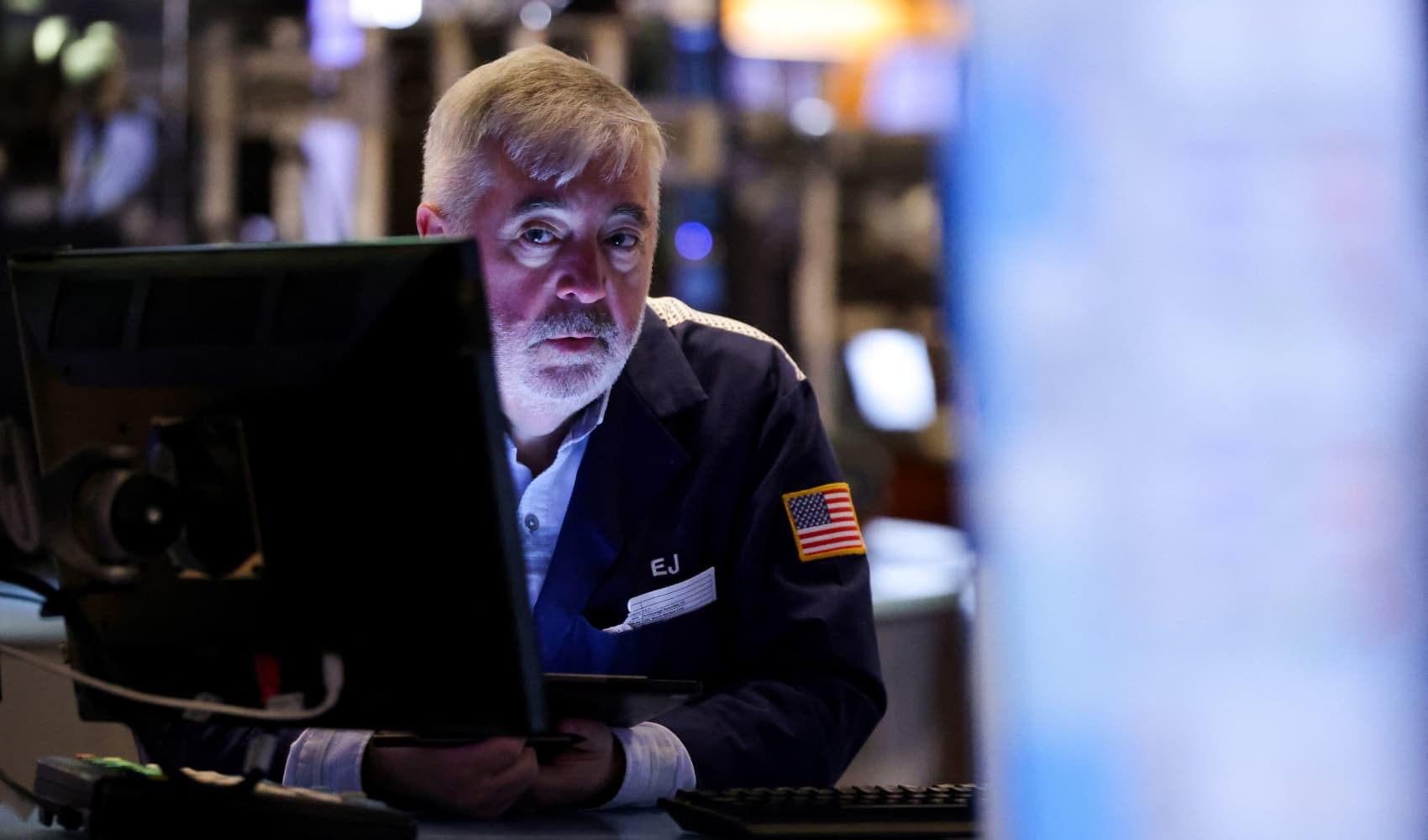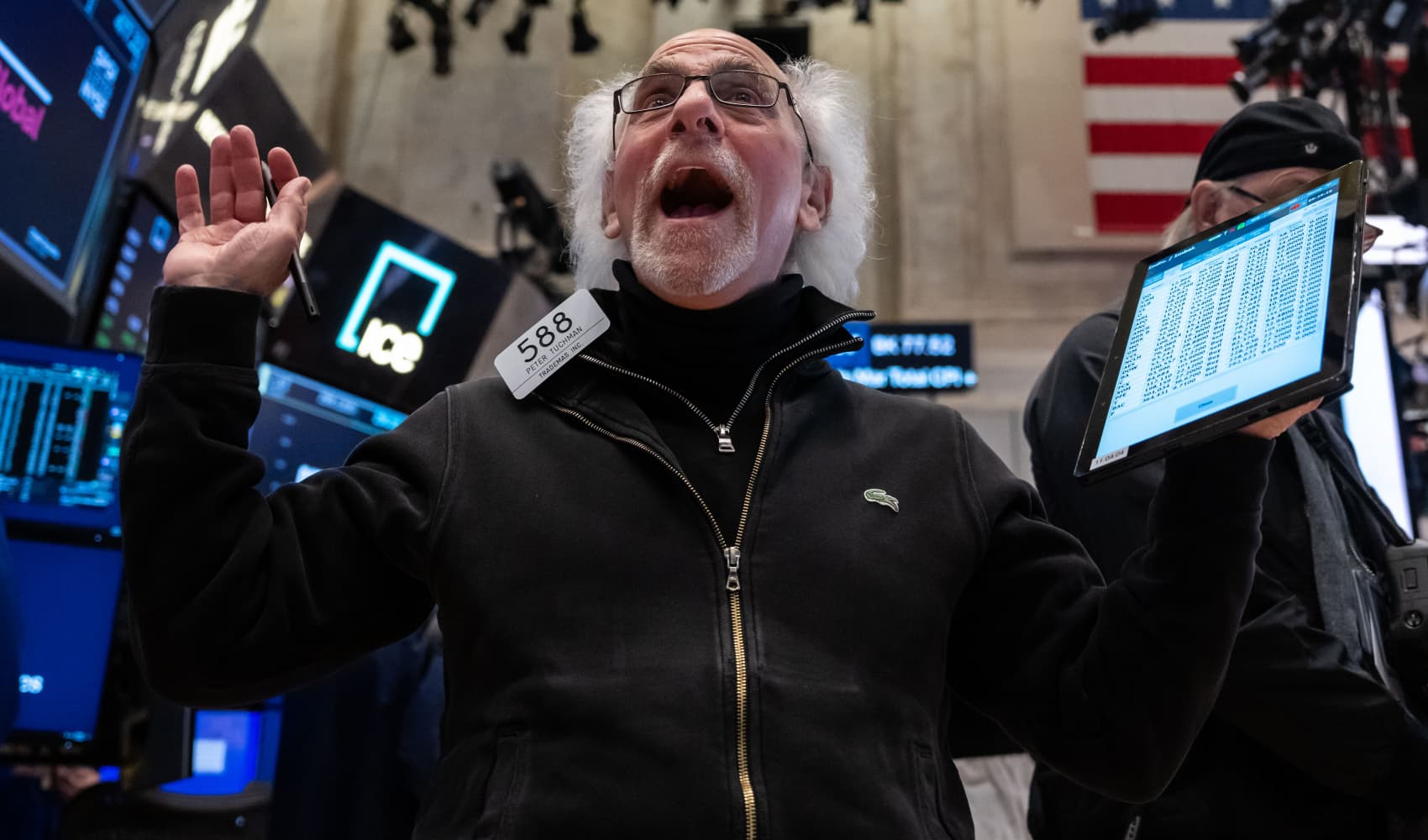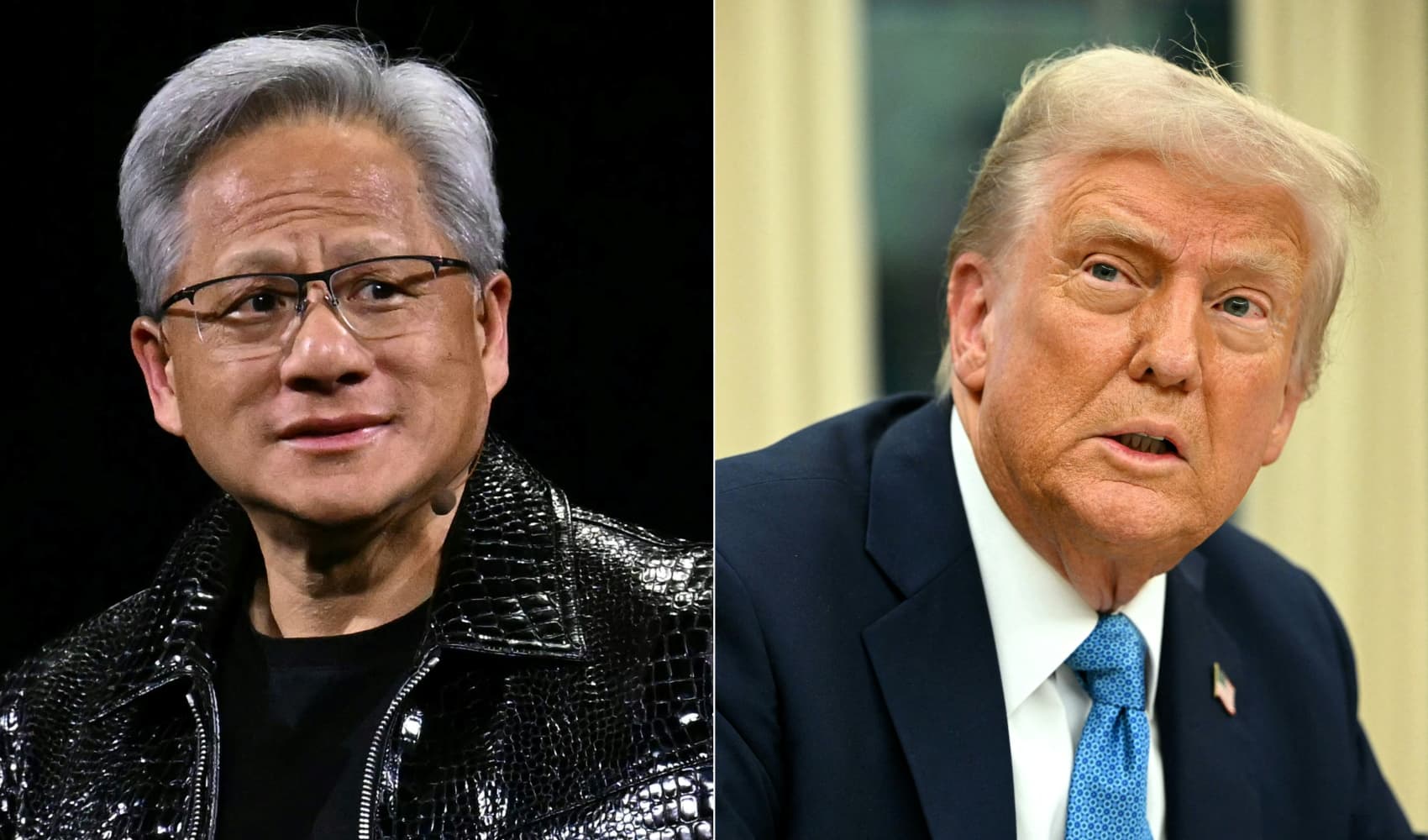10-Year Treasury Yield Dips: What's Next for Investors?
10-Year Treasury Yield Dips: Economic Data in the Spotlight
Introduction: What's Driving the Treasury Yield Down?
The financial markets are a complex beast, aren't they? One day everything's up, the next, it's down. Today, we're taking a closer look at a significant movement in the bond market: the dip in the 10-year Treasury yield. As of Tuesday, investors have been actively monitoring upcoming economic data releases, influencing this downward trend. So, what exactly is going on and why should you care?
The Numbers: A Closer Look at the Yield Drop
Let's get down to brass tacks. The benchmark 10-year Treasury yield experienced a decrease of more than 4 basis points, settling at 4.17%. Simultaneously, the 2-year Treasury yield also saw a reduction of over 2 basis points, landing at 3.658%. These numbers might seem small, but they represent a significant shift in investor sentiment.
Understanding Basis Points: The Language of Finance
For those unfamiliar, a basis point is equivalent to 0.01%. It’s a small unit, but like grains of sand, they can accumulate to form a dune. Keep in mind, yields and prices in the bond market have an inverse relationship: when yields go down, prices go up, and vice-versa.
Market Sentiment: Weighing Investor Confidence
What's the pulse of the market? The recent yield drop reflects a nuanced shift in investor confidence. Weakening confidence in U.S. assets is a key factor contributing to this trend. It's like a barometer, showing us which way the wind is blowing.
Echoes of the Past: Tariffs and Market Reaction
Remember the tariff announcements of the past? They continue to reverberate through the market. The specter of trade wars and protectionist policies still looms large, influencing investor behavior. Think of it like a ripple effect, spreading out from a single point.
Analyst Insights: Morgan Stanley's Perspective
Even the big firms are paying attention. Morgan Stanley, in a recent note, highlighted that "Evolving market perceptions of the trajectory of the U.S. economy and policymaking are taking the global economy and markets to unprecedented levels of uncertainty." This uncertainty is fueling volatility and driving investors to seek safer assets, often leading to lower Treasury yields.
The US-China Trade Tango: A Delicate Dance
The United States and China are locked in an intricate economic dance, aren't they? Any misstep could lead to major market repercussions. Traders are keenly observing any developments that might signal an escalation of tensions. It's a high-stakes game of chess, with the global economy as the board.
Secretary Bessent's Stance: A Glimmer of Hope?
We saw US Treasury Secretary Scott Bessent emphasize China on Monday, but the statement was not completed. Is this a sign of easing tension, or more of the same? The market is waiting with bated breath.
Economic Data on Deck: A Week of Revelations
Why is everyone so focused on economic data this week? Because these figures will provide crucial insights into the health of the U.S. economy. It's like reading tea leaves to predict the future. Will the data confirm fears of a slowdown, or offer a glimmer of hope? That's what everyone wants to know.
Key Indicators to Watch
- Inflation data: Will it continue to cool, or will we see a resurgence?
- Jobs reports: Are we still adding jobs at a healthy pace?
- GDP growth: Is the economy expanding, contracting, or stagnating?
- Consumer spending: Are consumers still willing to open their wallets?
- Manufacturing data: How are factories performing?
The Fed's Next Move: Policy Decisions in the Balance
The Federal Reserve is undoubtedly keeping a close watch on these developments. Will they continue to raise interest rates, pause, or even cut rates? Their decision will have a profound impact on Treasury yields and the broader economy. It’s like watching a tightrope walker, every step carefully calculated.
Global Implications: A Connected World
What happens in the U.S. doesn't stay in the U.S. The U.S. Treasury market has ripple effects across the globe, influencing everything from currency valuations to investment flows. The global economy is interconnected, and any significant movement in U.S. Treasury yields can be felt worldwide.
Inflation Expectations: The Key Driver
Inflation is the elephant in the room, isn't it? Inflation expectations play a crucial role in driving Treasury yields. If investors expect inflation to remain high, they'll demand higher yields to compensate for the erosion of their purchasing power. On the other hand, if inflation is expected to fall, yields may decline.
Risk Appetite: Where Are Investors Placing Their Bets?
Are investors feeling risk-averse or risk-on? Changes in risk appetite directly influence the demand for U.S. Treasuries. In times of uncertainty, investors often flock to the safety of U.S. government bonds, pushing yields down. Conversely, when risk appetite increases, investors may shift to higher-yielding assets, causing yields to rise.
Alternative Investments: The Competition for Capital
Treasuries aren't the only game in town. Investors always have a plethora of alternative investments to choose from, including stocks, corporate bonds, real estate, and commodities. The relative attractiveness of these alternatives influences the demand for Treasuries and their corresponding yields.
The Long-Term Outlook: What Does the Future Hold?
What can we expect in the long run? Predicting the future is a fool's errand, but we can make educated guesses based on current trends and expectations. The long-term trajectory of Treasury yields will depend on a complex interplay of factors, including economic growth, inflation, monetary policy, and geopolitical risks. It’s like trying to navigate a ship through a storm; you need to constantly adjust your course.
Conclusion: Key Takeaways
The recent dip in the 10-year Treasury yield underscores the uncertainty prevailing in the financial markets. Factors such as weakening investor confidence, concerns over trade tensions, and the anticipation of crucial economic data are all contributing to this trend. The Federal Reserve's policy decisions and global economic conditions will continue to shape the trajectory of Treasury yields in the months ahead. Stay informed, stay vigilant, and remember that the market is always evolving.
Frequently Asked Questions
Here are some frequently asked questions regarding 10-year Treasury yields:
-
Why is the 10-year Treasury yield considered a benchmark?
The 10-year Treasury yield is seen as a benchmark because it reflects the market's expectation of average inflation and economic growth over the next decade. It's used as a reference point for pricing other debt instruments, such as mortgages and corporate bonds.
-
How does the 10-year Treasury yield affect mortgage rates?
Mortgage rates tend to track the 10-year Treasury yield closely. When the 10-year yield rises, mortgage rates typically increase as well, making it more expensive to borrow money for a home purchase. Conversely, when the 10-year yield falls, mortgage rates tend to decrease.
-
What does an inverted yield curve signal?
An inverted yield curve occurs when short-term Treasury yields are higher than long-term yields, such as the 10-year yield. This is often seen as a potential sign of an impending recession, as it suggests that investors are less optimistic about future economic growth.
-
How can I track the 10-year Treasury yield?
The 10-year Treasury yield is widely reported in financial news outlets, websites, and data providers. You can easily find the current yield and historical data through sources like the Wall Street Journal, Bloomberg, Yahoo Finance, and the U.S. Department of the Treasury.
-
What factors influence the 10-year Treasury yield besides economic data?
Besides economic data releases, several other factors can influence the 10-year Treasury yield, including Federal Reserve policy decisions, geopolitical events, investor risk appetite, inflation expectations, global economic conditions, and supply and demand dynamics for Treasury securities.







